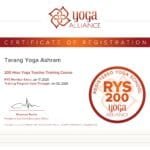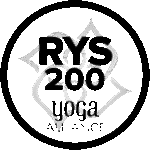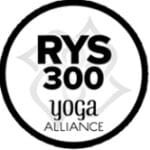100 Hour Yoga Teacher Training Course in Rishikesh
100 Hour Yoga Teacher Training Course in Rishikesh
A 11-Day Transformation
100 Hour Yoga Teacher Training Course in Rishikesh
Deepen Your Practice, Begin Your Teaching Journey by the Sacred Ganges
Experience authentic yoga in its birthplace—Rishikesh, a serene Himalayan town on the banks of the holy Ganges. Our 100 Hour Yoga Teacher Training Course in Rishikesh offers a powerful introduction to the traditional yogic path, blending ancient wisdom with modern teaching methods.
What You’ll Learn
Yoga Philosophy & Spiritual Foundations
Dive into the rich spiritual lineage of yoga, passed down by generations of enlightened gurus
Understand the deeper purpose of yoga—Raja Yoga (Meditation), the King of Yoga
Traditional Practices to Prepare Body & Mind
Hatha Yoga: Develop strength, flexibility, and harmony
Alignment & Adjustments: Learn safe, effective techniques for all bodies
Mudras & Pranayama: Master yogic gestures and breathwork for energetic balance
Shatkriyas (Yogic Cleansing): Detoxify and purify the body naturally
The Power of Sound
Mantra Chanting: Use sacred sound as a tool for transformation and mental clarity
Teaching Methodology
Learn how to design, structure, and sequence a yoga class
Gain the confidence to share yoga with others—even if you’re just beginning
Why Choose Us?
Authentic Himalayan Ashram Setting
Experienced Indian & International Teachers
Peaceful Location Steps from the Ganges
Supportive, Community-Oriented Environment
Who Is This Course For?
Aspiring yoga teachers starting their training journey
Students looking to deepen their personal yoga practice
Anyone seeking a spiritual and physical reset
Upcoming Batches Filling Fast!
Reserve your spot now and begin your path to personal transformation and teaching excellence.
This Course Starts From 2nd Of The Every Month.
Highlights
What is Hatha Yoga? Ha refers to the right side of your body (Sun) and Tha refers to the left side of your body (Moon). On a physical level, the purpose of Hatha Yoga is to create a balance between the left and the right side of your body, balance between the Sun and Moon influences on your life.
What you will learn :
- 21 step Surya Namaskar cycle with Mantra awareness for each step
- Upa Yoga/ Sukshma Vyama (Yoga to lubricate the joints and stimulate the glands)
- Standing Asanas
- Sitting Asanas
- Kneeling Asanas
- Prone Asanas
- Supine Asanas
- Inversion Asanas
- Benefits and Contradictions of Asanas
- How to correctly enter, center, adjust, hold, adjust and exit a pose.
- Fundamentals of Forward extension, Backward extension, Side extension and Twisting asanas.
- Variations of basic asanas.
- Limitations, Contraindications and
- Benefits of yogasanas.
- How to correct/adjust postures verbally and by touching.
- What is Prana and what are the 5 Types of Prana?
- Apana Prana, Samana Prana, Udana Prana, Vyana Prana & Prana Prana
- Chest Breathing vs Diaphragmatic Breathing
- What is Pranamaya and what are the 7 main Pranamaya practices? (Kapalbhati, Bhastrika, Brahmari, Sheetali, Seetkari, Nadi Shodana, Ujjayi)
- What are Nadis? Channels through which energy, prana flows. Ida, Sushmana and Pingala
- Introduction to Bhandas : Mula Bhanda, Uddiyan Bhanda, Jalandar Bhanda & Maha Bhanda
- What is Yogic Anatomy & Physiology?
- Introduction to the Respiratory System & Yogic Breathing
- How do Pranamaya practices connect to the Digestive & Immune System?
- Muscular System : Types of Muscle contractions and how asanas affect the muscular system.
- Types of Joints, how asanas affect joints and how to avoid injury whilst doing asanas.
- The structure of the spine, the affect of asanas on the spine and its movement during asanas.
- What are the 5 Layers, sheaths, dimensions of existence (Koshas) of the body and their associated psycholical & Physiological States? Going from Gross to Subtle : Annamaya Kosha, Pranamaya Kosha, Manomaya Kosha, Vijanamamaya Kosha & Anandamaya Kosha. Collectively known as Panchakosha.
- Introduction to Chakras.
- Types of Mudras
- Importance of Mudras
- Physical, Mental and Spiritual benefits of Mudras
- Practice of Gyan, Chin, and Ashwini Mudra
- Preparations for the Classroom
- Qualities of a Teacher and Types of Students
- Listening, Presence, Directive & Non Directive Dialogue
- How to Sequence the Class
- Importance of Demonstrations
- How to instruct Students to enter and hold Asanas
- Design & Layout of a Lesson Plan
- Meditation is an inner journey. Meditation is to take your awareness within from your Gross to your subtlest body.
- What is Yoga/The purpose of Yoga ? Union, Harmony, Samadhi, Consciousness, Enlightenment
- The Four Paths of Yoga- Jnana, Bhakti, Karma & Raja Yoga.
- Eight Limbs/ Eight Fold Path of Yoga as per Sage Patanjali (Ashtanga – Yama, Niyama, Asana, Pranamaya, Pratyahara, Dhyana, Dharana & Samadhi).
- Introduction & Brief Overview to YogaSutras by Sage Patanjali.
- Chapter 1 : Samadhi Pada
- Chapter 2 : Sadhana Pada
- Chapter 3 : Vibhuti Pada
- Chapter 4 : Kaivalya Pada
- The Five States of Mind (Kshipta, Vikshipta, Mudha, Ekagra, Nirodhah)
- The Four Faculties of the Mind Field (Ahamkara, Buddhi, Chitta, Manas).
- Mantras are instruments of the mind. Verses repeated over and over to train the mind, silence the mind, invoke energy, express gratitude.
- There are many mantras, each used for different occasions and circumstances based on the emotion, need and intention of he/she expressing it.
- Significance of Om- A U M Guru Mantra – Mantra for Universal Masters to Bless.
- Aum Gurur Brahma, Gurur Vishnu
- Opening Mantra- Aum Sahana Vavatu
- Sage Patanjali Mantra- Vandhe Gurunum Charanara Vinde
- Closing Mantra/Realisation Mantra- Aum Asato Maa Sad-Gamaya
- The Completeness Mantra- Aum Purrnam Adah, Purrnam Idam
- Meal Prayer- Aum Brahma Arpanam Surya Namaskar Mantra
- What are the 6 yogic practices used to remove waste from our internal organs that are not removed through regular means ? ( Kapalbhati, Trataka, Neti, Dhouti, Nauli & Vasti)
- Kapalbhati- Stimulating the Brain Cells
- Trataka- Eye Excercises
- Neti- Upper Nasal Track
- Dhouti- Cleansing the Intestine
- Nauli- Abdominal Muscle & Viscera
- Vasti- Cleansing the Bowels
Yoga Retreat Program in Rishikesh : Daily Schedule
05:00 Am Morning Bell
06:30 – 07:30 Am Vinyasa flow Yoga
07:30 – 09:00 Am Shatkarma & Pranayama
09:00 – 10:00 Am Breakfast
10:00 – 10:45 Am Yoga Science and Yoga Anatomy
11:00 – 11:45 Am Yoga Alignment
12:15 – 01:00 PmYoga Philosophy
01:00 – 02:00 Pm Lunch
04:00 – 5:30 Pm Ashtanga Yoga
06:00 – 7:00 Pm Meditation & Mantra chanting
07:10 – 08:00 pm Dinner
10:00 pm Lights off
Inclusions / Exclusions in Course Fee
Inclusions
- Private / Twin shared Accommodation Rooms with hot water, attached bath & toilet
- Unlimited free High Speed WiFi internet connection
- 3 Times daily nutritious vegetarian meals and teas
- Daily Yoga & Meditation Class
- One Himalayas Trip Sunday Funday
- 1 Sound Healing Session
- Every Saturday Satsang (Spiritual Gathering)
- Usage of in house library
Exclusions
- Flights
- Visa
- Pick -up & Drop from DED airport chargeable
- Ayurveda Therapies Chargeable






